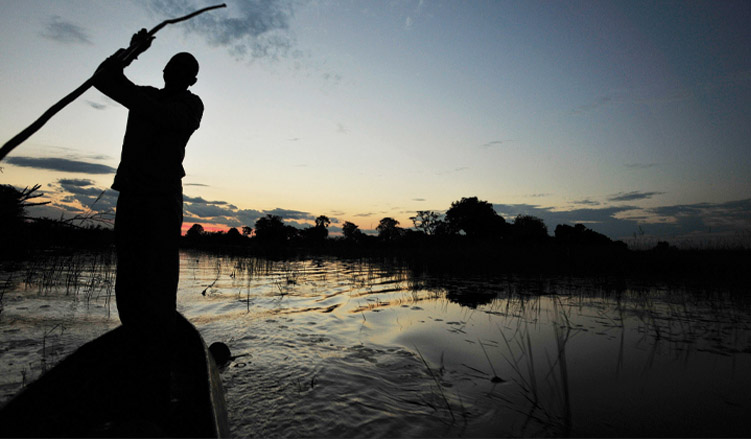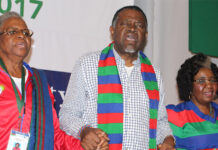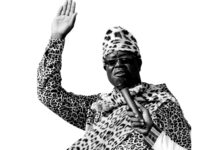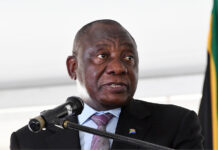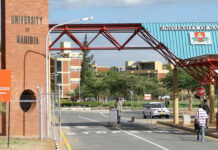By Jeffrey Barbee and Kerry Nash | 16 September 2020
CANADIAN company Recon Africa said in an August 2020 press release they are planning to drill oil and gas wells into an environmentally sensitive, protected area in Africa that supplies the Okavango Delta with water.
The drilling location sits along the banks of the Okavango River in the newly proclaimed Kavango Zambezi Transfrontier Conservation Area.
Recon Africa, which is listed on the Canadian TSX Venture Exchange, explains on their website they have acquired the rights to drill in more than 35 000 square kilometres of north-east Namibia and north-west Botswana.
Maps from both the Namibian and Botswana ministries of mines confirm they have been granted petroleum prospecting licences in the area.
Recon Africa claims this new discovery could be bigger than the Eagle Ford shale basin in Texas, which the United States Energy Information Agency says is one of the largest terrestrial oil and gas finds in the world.
Oil and gas discoveries like the Eagle Ford Basin helped make the United States the largest oil and gas producer in the world, but have also created massive problems, according to the Union of Concerned Scientists.
They explain in their Guide for Residents and Policy Makers Facing Decisions Over Hydraulic Fracturing that the negative impacts of hydraulic fracturing often include poor air and water quality, community health problems, safety concerns, long-term economic issues and environmental crises like habitat loss.
Recon Africa’s exploration licences border three national parks upstream of the Okavango Delta.
They also cover 11 separate community nature concession areas, one World Heritage site and part of the five-country Kaza Park – the largest protected area in southern Africa.
The drilling area also includes the last refuge of the San with a future drill site near the World Heritage Site of Tsodilo Hills in Botswana.
The United Nations Educational, Scientific and Cultural Organisation (Unesco) says the site holds 4 500 rock paintings.
IMPACT ON SAN
Namibian-born University of Cape Town social scientist Annette Hübschle is very concerned about the impact of this fracking project on San communities in the area.
“Particularly worrisome is that First Nations peoples, the San peoples, are living in the region. They are already living on the margins of society. This is going to negatively impact their way of life, their livelihood strategies and the place they call home.”

Namibia’s Ministry of Environment, Forestry and Tourism has shared an environmental impact assessment (EIA) that was done to cover the drilling of three wells by Recon Africa, yet many members of the government, affected communities and civil society are still in the dark about this development.
Chris Brown, chief executive officer of the Namibian Chamber of the Environment, says he is not aware of the potential shale oil find.
“I have spoken to a number of people to ask if anyone in the mining sector here had heard of this development and if anyone in the NGO sector had heard of it, and it seems to be totally under the radar here in Namibia.”
Brown says any kind of project like this should have gone through environmental review and permitting processes.
“There needs to be public consultation. We monitor all the adverts that come out in the newspaper, and we monitor all the adverts that come out around EIAs, and we haven’t picked this up at all,” Brown says.
He says an EIA is required by law in Namibia before any invasive activities can be conducted.
Maxi Pia Louis, director of the Namibian Association of Community-based Natural Resource Management Support Organisations (Nacso), is also concerned about the lack of consultation by Recon Africa in the eleven community park concessions included in the alleged prospecting licence area.
“I have no idea about this. It is huge, if there was an environmental impact assessment, I would have known because this is where a lot of our conservation projects are,” she says.
Max Muyemburuko is the chairperson of the 615 square kilometre Muduva Nyangana Conservancy, which is covered by the prospecting licence in Namibia.

He says two years ago people came to their community saying they were “looking for energy”.
“We tried to get hold of their team leader . . . but they said no, ‘we will come back to you after completing this research’, but since then they never came back.”
He says he is concerned that the company may have “made deals behind our backs”.
CONCERNED
Hübschle says this lack of communication is very troubling, given fracking’s social and environmental record in the US.
“We should be very concerned about the long-term impacts of fracking on livelihoods, health, ecosystems, biodiversity conservation and especially climate change.”
Fracking seems to be part of Recon Africa’s plan.
Recon Africa’s CEO, Scot Evans, is the former vice-president of US industry giant Halliburton.
He told the industry journal ‘Market Screener’ in June 2020 that Recon Africa hired fracking pioneer Nick Steinsberger in June to run the Namibian drilling project, saying: “Nick is the pioneer of ‘slick water fracs’.”
The prospective area is also home to Africa’s largest migrating elephant herd as well as endangered African painted dogs and sable antelope. It is also a cornerstone of Namibia’s tourism economy, which brings in around N$500 million a year in sustainable tourism revenue.
The Okavango River, in the north of the potential fracking zone, is the sole provider of water to the Okavango Delta, Botswana’s most visited tourist attraction.
This lifeline in the desert supports more than a million people in the region with food, employment and fresh water, according to scientist Anthony Turton.
MACHINES
Recon Africa says they are refurbishing a big drilling rig in Houston and will ship it to Namibia in October to begin drilling as soon as November or December this year.

On their website they say they own 90% of the Namibian side of the shale deposit, with the government-run National Petroleum Corporation of Namibia (Namcor) owning the rest.
“This is neo-colonial extraction of the worst sort where Namibians draw the shorter straw and foreign companies walk away with our mineral wealth,” says Hübschle.
Brown says “during the Covid-19 pandemic there may be ways around this process, like doing it remotely or through something like Zoom, but doing away with it completely would be illegal”.
Recon Africa has not responded to a request for comment.

